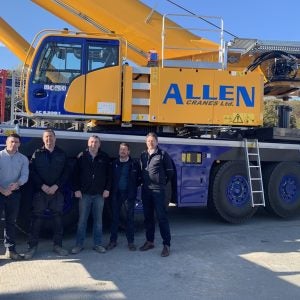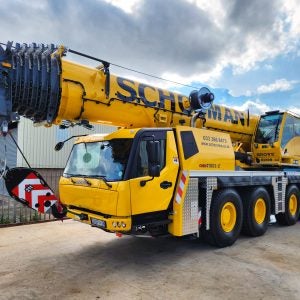European construction unions and employers’ organisations are campaigning against a proposed directive from the European Commission that they claim will lead to a lowering of standards.
The EC Directive on Services in the Internal Market is intended to remove barriers to trade between service providers in the European Union and so boost economic activity. It proposes that companies and their employees from one member state should be subject to the laws of their home nation even when working in another member state.
The European Federation of Building and Woodworkers (EFBWW) organised a protest against the directive in Brussels in November. The say that the directive would prevent host countries insisting on certain pay and employment conditions. For example, the UK minimum wage law would not apply to workers coming into the country from countries without minimum wage legislation.
The European Construction Industry Federation (FIEC) said that the country of origin principle would favour ‘unfair competition, social dumping and undeclared labour’.
FIEC president Wilhelm Küchler said: ‘The Commission should amend its text or exempt the construction sector from certain articles.’
The transport sector is exempt, which makes the provision of crane rental and lifting services a grey area. According to a spokesman for the European Commission, crane services at a port, for example, loading goods during the transportation process would be exempt. Lifting steelwork on a construction site would not.
The spokesman insisted however that it was unlikely that a crane rental company in Denmark, for example, could get round that country’s legal requirement for operators to be trained and certified by registering in the UK, where there is no such legal requirement, and using UK operators. ‘The health and safety regulations of the host country will continue to apply as long as they do not discriminate against service providers of other member states,’ he said. ‘Health and safety standards, as far as they concern health and safety of the employees operating or working with cranes, are exempt from the country of origin principle (article 17 of the proposal).’
This is not enough to satisfy the UK government’s Health & Safety Commission (HSC), however. It has expressed concerns to the European Commission that, under the directive, its safety inspectors will no loner be able to shut down the site or suspend the work of a temporary service provider (TSP) from another EU member country if it is breaching UK safety regulations.
The HSC said that the country of origin principle ‘will reduce present certainties about what requirements apply; which authorities are responsible for regulation and enforcement; what form that will take; how a TSP may be held to account for serious breaches; how another member state authority may be held to account for its decisions. This will depend on whether the provider is a TSP. When an incident has led to death or injury such uncertainties will impact on victims and bereaved families.’
The directive – also known as the Bolkestein directive – was published in January 2004 by Frits Bolkestein, the Dutchman who at the time was EU commissioner for the internal market. Bolkestein stepped down in November and was succeeded by Charlie McCreevy of Ireland.
The target date for implementation of the directive is 2010, but it is expected to be heavily revised over the coming years.






